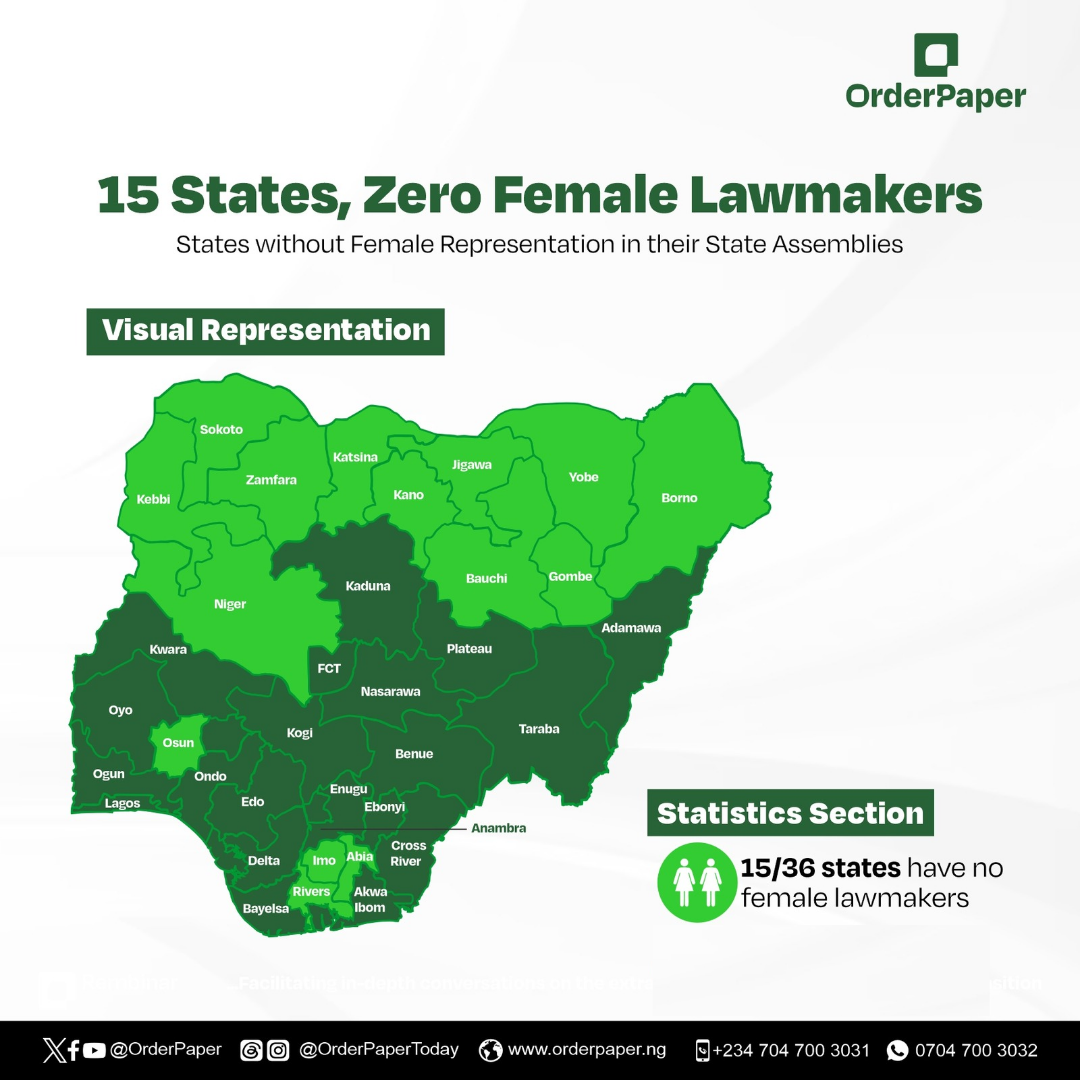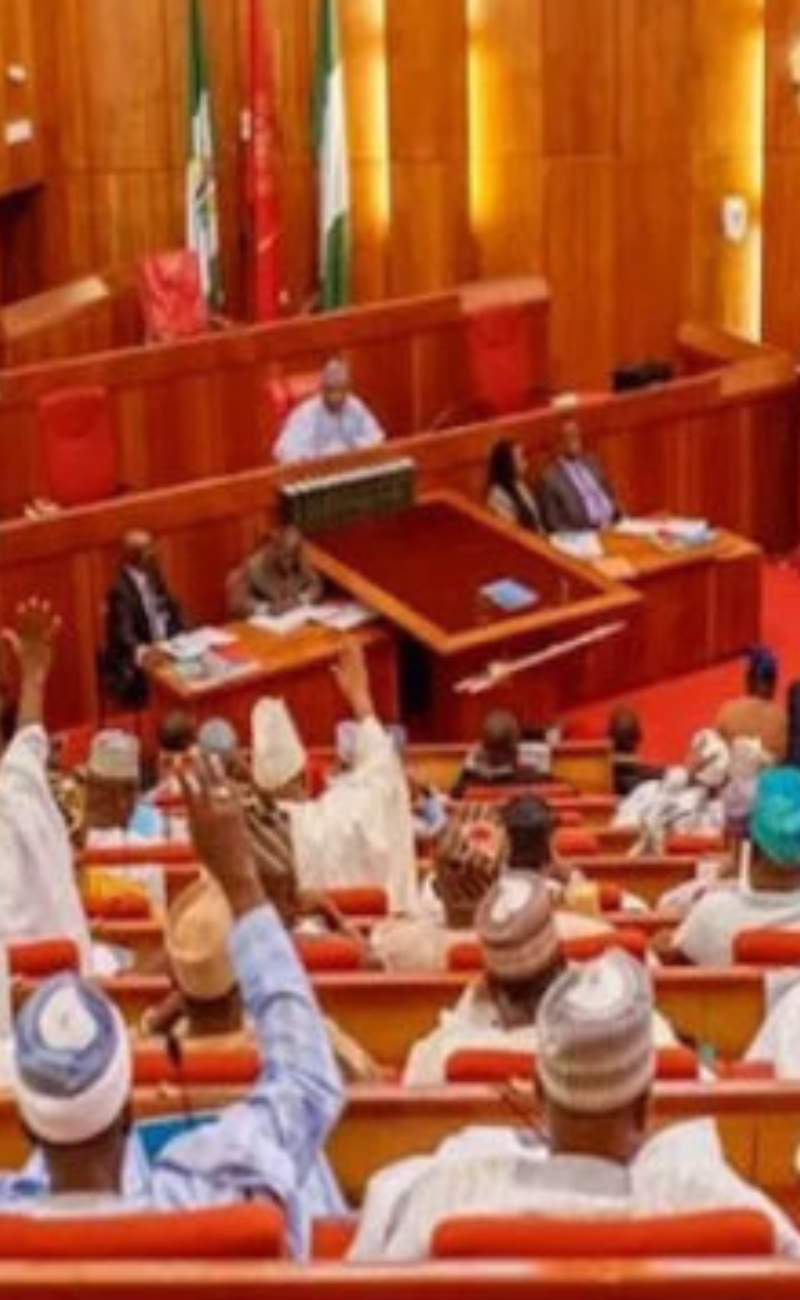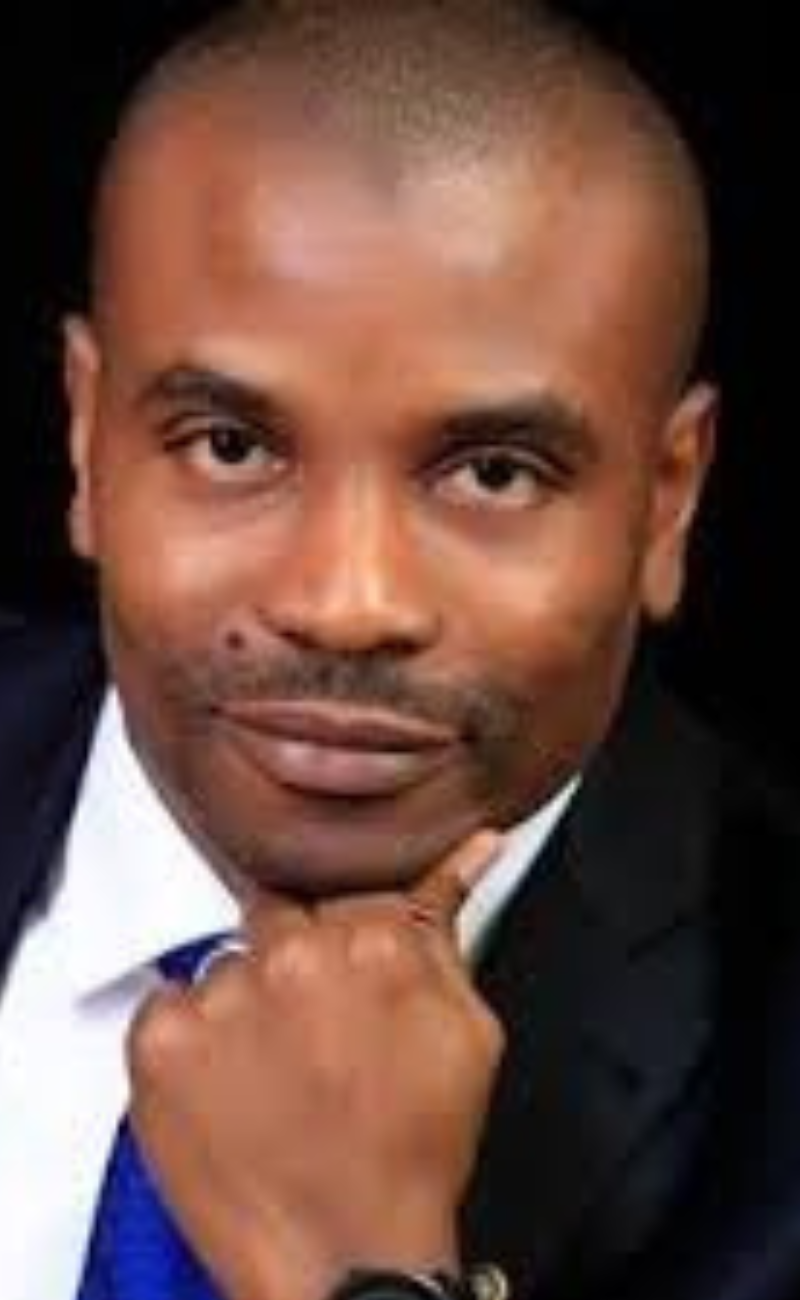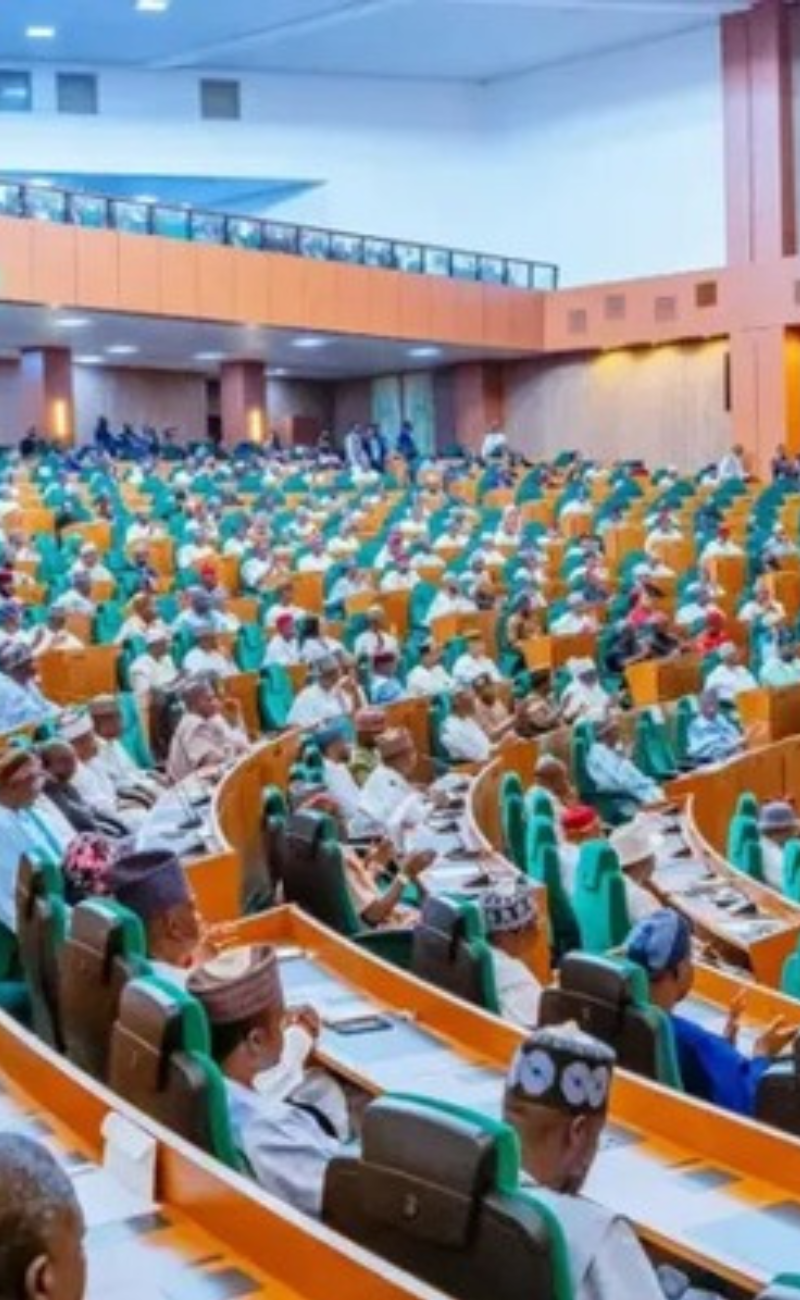
In this episode of the Gender Equality and Social Inclusion (GESI) tracker, we explore the push for greater inclusivity in Nigeria’s political landscape, which has gained momentum through a series of constitutional amendment bills in the House of Representatives to ensure better representation for marginalized groups.
![]()
These bills seek to provide special seats for women, persons with disabilities (PWDs), youths, and other underrepresented groups in legislative and political appointments.
Bill Analysis and Proposed Impact
Special Seats for Physically Challenged Persons
A bill for an Act to alter the constitution of the Federal Republic of Nigeria, 1999 (as amended) to provide for special seats for physically challenged persons in Nigeria is sponsored by Rep. Tajudeen Abbas (APC, Kaduna) and Rep. Marcus Onobun (PDP, Edo). It seeks to reserve legislative seats at the federal, state, and local government levels for persons with disabilities (PWDs).

The bill aligns with global best practices, such as the United Nations Convention on the Rights of Persons with Disabilities (CRPD), which emphasises the need for full and effective participation of PWDs in public affairs.
By institutionalising their representation in legislative houses, Nigeria would take a progressive step toward dismantling systemic barriers that have long prevented PWDs from influencing policies that directly affect their lives.
This proposed legislation could reshape Nigeria’s governance landscape by fostering inclusivity and equitable representation. If passed, it will set a precedent for broader social inclusion policies, ensuring that individuals with disabilities are not only seen but also heard in governance, thereby addressing the long-standing exclusion of this community from decision-making processes.
Lessons from Other African Countries
In Africa, only five countries—Kenya, Uganda, Rwanda, Zimbabwe, and Egypt—have constitutionally enshrined the representation of persons with disabilities in their parliaments, ensuring a legally binding commitment to political inclusion.
Uganda reserves five parliamentary seats for persons with disabilities, including at least one woman, selected through a national electoral college. Rwanda and Zimbabwe allocate seats in their respective legislatures using a similar system.
Kenya mandates fair representation of marginalized groups, requiring at least two senators and additional nominees in parliament and county assemblies. Egypt’s bicameral legislature guarantees representation through a mix of party lists and presidential appointments, ensuring at least eight parliamentary seats for persons with disabilities.
By embedding these provisions in their constitutions, these nations have set a precedent for inclusive governance in Africa.

READ ALSO: Care and Respect: Safeguarding Older Persons in Society | GESI Tracker
Six Special Seats for Special Interest Groups
Sponsored by Rep. Akintunde Rotimi (APC, Ekiti), this bill seeks to establish dedicated legislative representation for special interest groups, ensuring that vulnerable populations have a direct voice in national policymaking.

Nigeria’s political landscape has long been dominated by a few socio-political demographics, often excluding marginalized groups and disadvantaged populations. While advocacy efforts have led to some progress, systemic barriers continue to hinder inclusive representation.
Several African countries, including Rwanda, Uganda, and Kenya, have implemented reserved seat policies to enhance diversity in governance. However, this bill aligns with Nigeria’s commitments under international frameworks such as the United Nations Sustainable Development Goals (SDGs), particularly Goal 5 (Gender Equality) and Goal 10 (Reduced Inequalities).
The inclusion of these groups would foster legislation that reflects diverse perspectives, ultimately leading to more inclusive governance.
If passed, it will not only provide political opportunities for marginalized groups but also strengthen national policymaking by incorporating diverse perspectives.
Specific Seats for Women
The bill for an Act to alter the provisions of the Constitution of the Federal Republic of Nigeria, 1999 (as amended) to provide for specific seats for women in the National and State Houses of Assembly and for related matters is sponsored by Rep. Kafilat Ogbara (APC, Lagos).
It seeks to increase women’s representation in Nigeria’s legislative institutions. This bill, currently at its second reading, seeks to address the historical gender imbalance in political representation by creating special legislative seats for women at both the national and state levels.
READ ALSO: Natasha: Women Representation and Patriachial Parliaments | GESI Tracker
Women’s participation in Nigeria’s political landscape remains significantly low. Despite making up nearly half of the country’s population, in the Senate, we have 4 women, and in the House of Representatives, we have 16 women. Also, out of the 36 state assemblies, 15 do not have the presence of women.

Hence, institutionalizing reserved seats for women would be a game-changer, leading to increased female participation in governance, policy reforms that prioritize gender equality, and an overall shift toward a more balanced political landscape.
Countries like Rwanda, South Africa, which have successfully implemented gender quotas, serve as a testament to the transformative power of such measures in strengthening democracy.
This bill aligns with Nigeria’s commitments under the National Gender Policy, the Convention on the Elimination of All Forms of Discrimination Against Women (CEDAW), and the African Charter on Human and Peoples’ Rights on the Rights of Women in Africa (Maputo Protocol).
READ ALSO: Where did the Money go? Probing Nigeria’s Cash Transfer Scheme | GESI Tracker

Inclusion of Youths and PWDs in Political Appointments
Rep. Ikeagwuonu Onyinye Ugochinyere’s bill underscores the need to integrate young people and persons with disabilities (PWDs) into political appointments. With Nigeria’s youthful population making up over 60 percent of the total demographic, the lack of adequate youth representation in government is a glaring oversight that hinders innovation and forward-thinking governance.
Many political appointments are dominated by older politicians and individuals with longstanding political affiliations, creating barriers for younger and differently-abled individuals seeking leadership positions
By mandating a quota for youth and PWDs in political appointments, this bill would create pathways for fresh perspectives and progressive policies that address the unique challenges of these groups.
It will also pave the way for a more diverse leadership structure that reflects the country’s demographic composition.
Broader Implications of Inclusivity
The common thread running through these bills is the recognition that true democracy must be inclusive. Representation and inclusion matter, not just as a moral imperative but as a critical factor in achieving equitable development. These bills acknowledge historical exclusions and seek to correct them through legal and institutional means.
If passed, these bills would:
- Strengthen Nigeria’s democratic institutions by ensuring broader representation.
- Promote policies that address the specific needs of marginalized communities such as women, PWDs, and youth
- Encourage political participation among underrepresented groups, leading to a more engaged electorate.
- Position Nigeria as a leader in inclusive governance and social justice.
However, the success of these bills depends on strong advocacy, public awareness, and political will. Civil society organizations, advocacy groups, and Nigerians must continue to push for legislative reforms that foster inclusivity and equality.
Conclusion
The introduction of these bills signals a growing recognition that Nigeria’s democracy must evolve to reflect the diversity of its population. While the legislative process remains unpredictable, the conversation around representation is gaining traction. Lawmakers must now rise to the occasion, demonstrating their commitment to a truly inclusive democracy by ensuring these bills move beyond mere proposals to full implementation.




